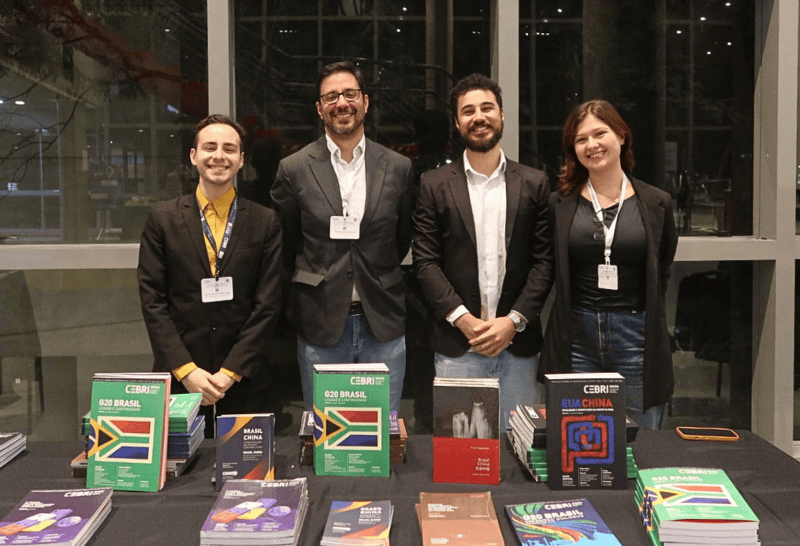CEBRI Participates in the ABRI 2025 Conference at USP
- 24 july 2025
Between July 21 and July 24, CEBRI participated in the Joint DPLST-LAC-ABRI 2025 Conference, held at the University of Sao Paulo (USP). The event brought together the Brazilian Association of International Relations (ABRI), the Latin American Section of the International Studies Association (ISA-LAC), and the Democracy and Autocracy/Political Institutions (DPLST) group.
Under the theme "Development and Diplomacy in the Global South", the conference explored the complex nexus of sustainable development, international diplomacy, and global governance, with a particular focus on the unique challenges and opportunities facing the Global South.
Feliciano de Sa Guimaraes, Academic Director at CEBRI, served as the chair of the conference and was directly involved in organizing the event. As a speaker, he shared his reflections on Brazil's position within the international system and the dilemmas confronting democracies of the Geopolitical South amid increasing global fragmentation. His presentation underscored the importance of a critical and context-sensitive approach to understanding global governance dynamics, reaffirming CEBRI's commitment to strategic analysis aligned with transformations in world politics.
The conference gathered academics, policymakers, and institutional representatives from Latin America and other regions, establishing itself as a space for interdisciplinary dialogue and strengthening intellectual networks in International Relations. Key panels covered themes such as multilateralism, democratic regimes, the transition of international orders, and the role of developing countries.
During the event, CEBRI also hosted an institutional booth showcasing editions of the CEBRI Journal and other publications to foster dialogue with the academic community.
Also in attendance were Gustavo Heluane, Executive Advisor at CEBRI, and project interns Jose Ricardo Araujo and Marianne Moreira.
CEBRI's participation in ABRI 2025 reinforces its role as a center of excellence in international policy, committed to producing knowledge and articulating it among academia, diplomacy, and civil society.

